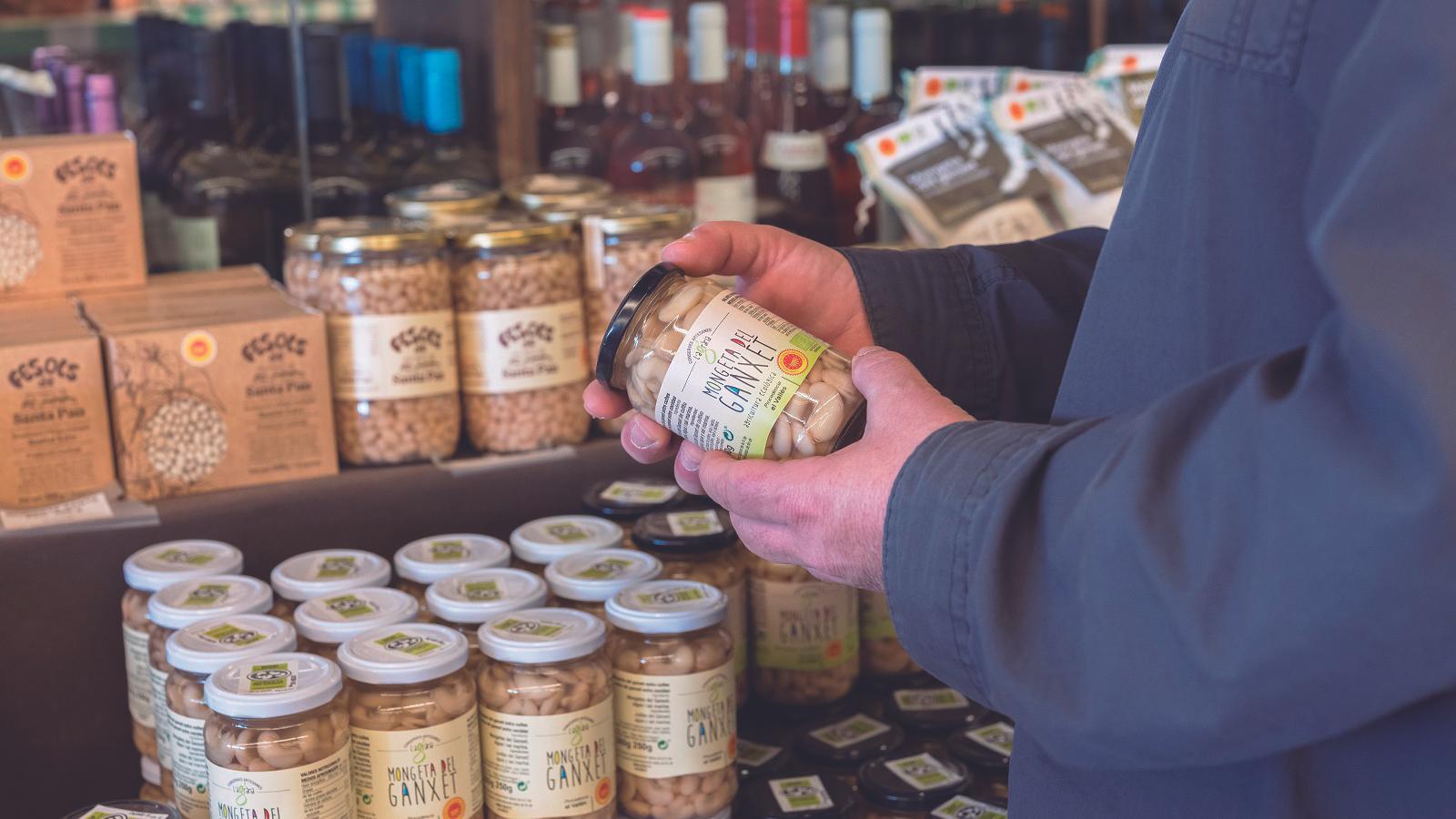Food produced by cooperatives, synonymous with quality, origin and season
Agricultural and livestock cooperatives account for 37% of Catalan agricultural production. Olive oil, almonds, rice, hazelnuts, wine, and fruit are among the most cooperatively organized sectors.

Agricultural cooperatives are companies that, under cooperative principles, bring together farmers and ranchers, who are both members and owners. In Catalonia, between 32,000 and 33,000 people support a sector with an increasingly significant impact on the country's productive fabric. Not surprisingly, 37% of Catalan agricultural production comes from cooperatives, with such representative products as olive oil (76% of the total), almonds (72%), hazelnuts (67%), carob (63%), wine (53%), seeded fruit (24.44%) and herbaceous crops (excluding fodder) (39%), citrus fruits, and milk (36%).
The productive model of agricultural cooperatives is based on a triple sustainability: economic, social, and environmental. And while supplying the population with quality, local food, the company is committed to boosting local activity and working to guarantee income for the production sector. This is a premise shared by the 185 federated cooperative companies throughout the country, whose work the Federation of Agricultural Cooperatives of Catalonia is taking the opportunity to highlight once again within the framework of the International Year of Cooperatives.
Where to find the products
Consumers who want to find the best that agricultural cooperatives and local producers have to offer can access the Agrobotigues.coop portal. The platform, promoted by the Federation of Agricultural Cooperatives of Catalonia, with the support of the Government of Catalonia, becomes a direct and joint showcase for some twenty Catalan agricultural cooperatives, a driving force that will soon grow with new additions. The goal is to bring local agricultural products to consumers, promoting rural development, so purchasing through Agrotiendas is a conscious and responsible act. It should be noted that there are no intermediaries in the marketing of products through the portal; the food comes directly from the cooperatives.
On its website, the Federation of Agricultural Cooperatives of Catalonia also has a directory of almost ninety Catalan cooperatives that offer home delivery service, as well as a compilation of more than 140 physical agricultural stores - totaling more than 18,000 m2 throughout Catalonia and also with an online store—where users can try the products and discover firsthand the territory where production takes place.
"Cooperatives ensure that the profits from the countryside are reinvested in the territory."
Interview with Ramon Sarroca, president of the Federation of Agricultural Cooperatives of Catalonia
What differential values do foods produced by cooperatives provide?
— Food produced by cooperatives is a guarantee of local origin and the person who produces it, as well as seasonal and local products. All of them, of course, are based on excellent quality, which we make available to consumers.
What social and economic impact do they have?
— Currently, there are more than 32,000 members of this agricultural and livestock cooperative movement. Beyond being an economic engine around which the cooperative operates, it is equally important to us that the majority of the profits we farmers and ranchers obtain from our products return to the land. The benefits flow back to the rural world, in the form of investment, services, consumption, and more.
What would you recommend to the consumer when making their shopping basket?
— The agri-food sector (both producers and distributors) doesn't make things very easy for consumers. However, I would suggest paying attention to labeling. We aim for labeling to be serious and rigorous: consumers will see the provenance, origin, and quality of the product. Then, I would encourage them to consume seasonal products. We should stop eating cherries in February. Each season has its products, and they all boast unbeatable quality. From there, I would encourage them to find distribution options on cooperative websites. There are tools to stay well informed.
